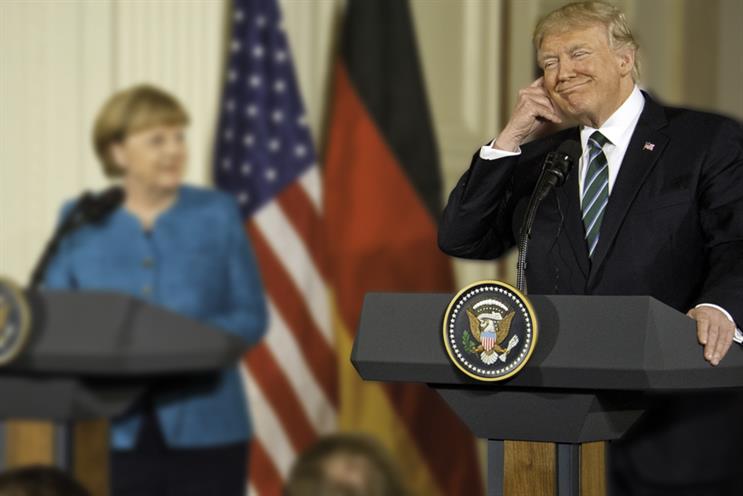Oasis released an album in 2005 that proved to be ahead of its time. It was called Don’t Believe the Truth. Back in those days, the truth was that diesel engines were preferable to petrol engines, our banking system was in good order and, as Rochdale pensioner Gillian Duffy learned to her cost when she accosted Gordon Brown on the campaign trail in 2010, if you raised the subject of immigration you were labelled a bigot.
Not any more. The truth is very different now. Diesel engines are hidden killers. Our banking system nearly collapsed. And immigration has been destigmatised as a subject for debate across the political spectrum. How the truth changes.
It has become fashionable to see these days of Trump and Brexit as the post-truth era. But I wonder if this is just another distortion.
The reason I give these examples is to show how every era wrestles with the truth. It has become fashionable to see these days of Trump and Brexit as the post-truth era. But I wonder if this, in turn, is really just another distortion.
Of course, there are plenty of things to be sceptical about at the moment. Fake stories and alternative facts abound, especially in some over-combed quarters. But we shouldn’t confuse the meaning of Trump with the meaning of truth; to suggest that overall standards of truthfulness have somehow plummeted seems like an overstatement of which even he would be proud.
To start with, for a point of comparison, what would we hold up as the high-water mark of the era of truth? Tony Blair’s arguments for the Iraq War? Florida’s hanging chads? The coalition’s promises on tuition fees? Pravda in the 70s or Nixon and Watergate? The fact is, nothing is above suspicion and every generation will have good cause for scepticism. But it seems tendentious to argue that overall standards of truthfulness and accountability are deteriorating. That we have entered a post-truth world. The reverse seems more likely.
In our narrow field of advertising, we can look back with some consternation at what was legal only 25 years ago. Alcohol advertising could trade on social success and cigarettes could not only advertise but promote themselves as fashion accessories.
This hardly represented the sunlit uplands of veracity. Ethical standards have undoubtedly improved. Employees are better protected and, over the past few years, there are a number of initiatives (including those of the IPA) that mean the composition of our workforce is far more closely scrutinised so we can see where we are failing in terms of diversity and equality. The truth may be that we have a long way to go but at least we are now bothered about establishing the facts. And this puts us in a position to take action or be judged for not doing so.
Despite some garish headlines, it is unlikely that standards of truth are falling.
The amount of information to which consumers now have access is significant compared with what was available 25 years ago. What once was opaque is now much more open to view, particularly in terms of a company’s employment practices and supply chain.
Yes, there is still much further to go, but there seems little evidence that the transparency agenda will suddenly wane. In fact, people’s appetite for the truth seems keener with each passing year.
We are seeing this manifested in such things as the number of inquiries into historical injustices; our growing knowledge about health and income disparities; the rise of consumer review and price-comparison sites and the recent surge in the membership of the American Civil Liberties Union.
Despite some garish headlines, it is unlikely that standards of truth are falling. Instead, our expectations of transparency are rising. This has to be good news for brands and companies that are doing the right thing by their staff, their communities and their customers.
These are the brands that are now setting the agenda, these are the brands that, when predators come knocking, can hold their heads high and tell them where to go.
These are the brands that tend to be launched out of our industry by our brightest and best (on which note, good luck Halo, may you be another Innocent – interesting use of vocabulary in both cases).
The reason for my confidence isn’t that I think the world is becoming more virtuous. It clearly isn’t. My reason is that, in an age of unprecedented accountability, it is in everyone’s self-interest to be open and honest. This is the most competitive strategy. And, where openness coincides with self-interest, truth will flourish.
Charles Vallance is the founder and chairman, VCCP.
@thebrandedgent


